中华人民共和国人民法院组织法(2018修订)(中英文对照版)
法律文本
中华人民共和国人民法院组织法(2018修订)
Organic Law of People's Courts of the People's Republic of China (Revised in 2018)
主席令第十一号
Presidential Decree No. 11
《中华人民共和国人民法院组织法》已由中华人民共和国第十三届全国人民代表大会常务委员会第六次会议于2018年10月26日修订通过,现将修订后的《中华人民共和国人民法院组织法》公布,自2019年1月1日起施行。
The Organic Law of People's Courts of the People's Republic of China, revised and adopted at the 6th Session of the Standing Committee of the 13th National People's Congress of the People's Republic of China on 26 October 2018, is hereby promulgated, effective 1 January 2019.
中华人民共和国主席 习近平
President Xi Jinping
2018年10月26日
October 26, 2018
(1979年7月1日第五届全国人民代表大会第二次会议通过 根据1983年9月2日第六届全国人民代表大会常务委员会第二次会议《关于修改〈中华人民共和国人民法院组织法〉的决定》第一次修正 根据1986年12月2日第六届全国人民代表大会常务委员会第十八次会议《关于修改〈中华人民共和国地方各级人民代表大会和地方各级人民政府组织法〉的决定》第二次修正 根据2006年10月31日第十届全国人民代表大会常务委员会第二十四次会议《关于修改〈中华人民共和国人民法院组织法〉的决定》第三次修正 2018年10月26日第十三届全国人民代表大会常务委员会第六次会议修订)
(Adopted at the Second Session of the Fifth National People 's Congress on July 1, 1979; amended for the first time in accordance with the Decision on Revising the Organic Law of People's Courts of the People's Republic of China adopted at the Second Session of the Standing Committee of the Sixth National People's Congress on September 2, 1983; amended for the second time in accordance with the Decision on Revising the Organic Law of Local People's Congresses and Local People's Governments of the People's Republic of China adopted at the 18th Session of the Standing Committee of the Sixth National People's Congress on December 2, 1986; amended for the third time in accordance with the Decision on Revising the Organic Law of People's Courts of the People's Republic of China adopted at the 24th Session of the Standing Committee of the Tenth National People's Congress on October 31, 2006; and revised at the Sixth Session of the Standing Committee of the 13th National People's Congress on October 26, 2018)
第一章 总 则
Chapter 1 General Provisions
第一条 为了规范人民法院的设置、组织和职权,保障人民法院依法履行职责,根据宪法,制定本法。
Article 1 In order to regulate the establishment, organization and functions and powers of people's courts, and ensure that people's courts perform their duties according to law, this Law is formulated in accordance with the Constitution.
第二条 人民法院是国家的审判机关。
Article 2 People's courts are judicial organs of the State.
人民法院通过审判刑事案件、民事案件、行政案件以及法律规定的其他案件,惩罚犯罪,保障无罪的人不受刑事追究,解决民事、行政纠纷,保护个人和组织的合法权益,监督行政机关依法行使职权,维护国家安全和社会秩序,维护社会公平正义,维护国家法制统一、尊严和权威,保障中国特色社会主义建设的顺利进行。
People's courts shall, through the adjudication of criminal, civil and administrative cases as well as other cases as provided by law, punish criminals, ensure that innocent people are not incriminated, settle civil and administrative disputes, protect the legitimate rights and interests of individuals and organizations, supervise the exercise of functions and powers by administrative organs in accordance with the law, safeguard national security and social order, maintain social fairness and justice, safeguard the unity, dignity and authority of the national legal system, and ensure the smooth progress of the building of socialism with Chinese characteristics.
第三条 人民法院依照宪法、法律和全国人民代表大会常务委员会的决定设置。
Article 3 People's courts shall be established in accordance with the Constitution, laws, and decisions of the Standing Committee of the National People's Congress.
第四条 人民法院依照法律规定独立行使审判权,不受行政机关、社会团体和个人的干涉。
Article 4 The people's courts exercise judicial power independently, in accordance with the provisions of law, and are not subject to interference by any administrative organ, public organization or individual.
第五条 人民法院审判案件在适用法律上一律平等,不允许任何组织和个人有超越法律的特权,禁止任何形式的歧视。
Article 5 In the trial of cases by people's courts, the law shall be applied equally, no organization or individual shall have the privilege of transcending the law, and discrimination, in any form, is not allowed.
第六条 人民法院坚持司法公正,以事实为根据,以法律为准绳,遵守法定程序,依法保护个人和组织的诉讼权利和其他合法权益,尊重和保障人权。
Article 6 People's courts shall uphold judicial fairness, base themselves on facts, take law as the criterion, comply with the statutory procedures, protect litigation rights and other legitimate rights and interests of individuals and organizations, and respect and protect human rights.
第七条 人民法院实行司法公开,法律另有规定的除外。
Article 7 People's courts shall adhere to the principle of judicial transparency, unless otherwise stipulated by the law.
第八条 人民法院实行司法责任制,建立健全权责统一的司法权力运行机制。
Article 8 People's courts shall implement a judicial responsibility system, and establish a sound mechanism for exercise of the judicial power which shall be based on the integration of powers and responsibilities.
第九条 最高人民法院对全国人民代表大会及其常务委员会负责并报告工作。地方各级人民法院对本级人民代表大会及其常务委员会负责并报告工作。
Article 9 The Supreme People's Court is responsible and reports on its work to the National People 's Congress and its Standing Committee. Local people's courts at various levels are responsible and report on their work to the people's congresses at corresponding levels and their standing committees.
各级人民代表大会及其常务委员会对本级人民法院的工作实施监督。
People's congresses at various levels and their standing committees shall exercise supervision over the work of people's courts at corresponding levels.
第十条 最高人民法院是最高审判机关。
Article 10 The Supreme People's Court is the highest judicial organ.
最高人民法院监督地方各级人民法院和专门人民法院的审判工作,上级人民法院监督下级人民法院的审判工作。
The Supreme People's Court supervises the administration of justice by the people's courts at various local levels and by the special people's courts. People's courts at higher levels supervise the administration of justice by those at lower levels.
第十一条 人民法院应当接受人民群众监督,保障人民群众对人民法院工作依法享有知情权、参与权和监督权。
Article 11 People's courts shall accept public supervision, and guarantee the people's right to know, participate and supervise the work of People's courts.
第二章 人民法院的设置和职权
Chapter 2 Establishment, and Functions and Powers of People's courts
第十二条 人民法院分为:
Article 12 People's courts are divided into:
(一)最高人民法院;
1. the Supreme People's Court;
(二)地方各级人民法院;
2. local people's courts at various levels; and
(三)专门人民法院。
(III) special people's courts.
第十三条 地方各级人民法院分为高级人民法院、中级人民法院和基层人民法院。
Article 13 Local people's courts at various levels are divided into higher people's courts, intermediate people's courts and primary people's courts.
第十四条 在新疆生产建设兵团设立的人民法院的组织、案件管辖范围和法官任免,依照全国人民代表大会常务委员会的有关规定。
Article 14 The organization, scope of jurisdiction, appointment and removal of judges of people's courts set up by Xinjiang Production & Construction Corps shall be subject to the relevant provisions of the Standing Committee of the National People's Congress.
第十五条 专门人民法院包括军事法院和海事法院、知识产权法院、金融法院等。
Article 15 Special people's courts include military courts, maritime courts, intellectual property courts and financial courts.
专门人民法院的设置、组织、职权和法官任免,由全国人民代表大会常务委员会规定。
The establishment, organization, functions and powers, and appointment and removal of judges of special people's courts shall be stipulated by the Standing Committee of the National People's Congress.
第十六条 最高人民法院审理下列案件:
Article 16 The Supreme People's Court handles the following cases:
(一)法律规定由其管辖的和其认为应当由自己管辖的第一审案件;
1. cases of first instance assigned by laws to its jurisdiction and those it believes should be subject to its jurisdiction;
(二)对高级人民法院判决和裁定的上诉、抗诉案件;
2. cases of appeals and protests lodged against judgments and orders of the higher people's courts;
(三)按照全国人民代表大会常务委员会的规定提起的上诉、抗诉案件;
3. cases of appeals and protests lodged in accordance with the provisions of the Standing Committee of the National People's Congress;
(四)按照审判监督程序提起的再审案件;
4. cases of retrial initiated in accordance with the procedures for trial supervision; and
(五)高级人民法院报请核准的死刑案件。
(V) death penalty cases submitted by the higher people's courts for approval.
第十七条 死刑除依法由最高人民法院判决的以外,应当报请最高人民法院核准。
Article 17 Death sentences shall be submitted to the Supreme People's Court for approval, except for the ones imposed in accordance with laws by the Supreme People's Court.
第十八条 最高人民法院可以对属于审判工作中具体应用法律的问题进行解释。
Article 18 The Supreme People's Court may interpret those issues relating to the application of law which fall under the scope of judicial work.
最高人民法院可以发布指导性案例。
The Supreme People's Court may release guiding cases.
第十九条 最高人民法院可以设巡回法庭,审理最高人民法院依法确定的案件。
Article 19 The Supreme People's Court may set up circuit courts to hear cases determined by the Supreme People's Court in accordance with the law.
巡回法庭是最高人民法院的组成部分。巡回法庭的判决和裁定即最高人民法院的判决和裁定。
The circuit court is part of the Supreme People's Court. Judgments and rulings made by circuit courts are deemed as those made by the Supreme People's Court.
第二十条 高级人民法院包括:
Article 20 Higher people's courts are:
(一)省高级人民法院;
1. higher people's courts of provinces;
(二)自治区高级人民法院;
(II) higher people's courts of autonomous regions; and
(三)直辖市高级人民法院。
(III) higher people's courts of municipalities directly under the Central Government.
第二十一条 高级人民法院审理下列案件:
Article 21 A higher people's court may hear the following cases:
(一)法律规定由其管辖的第一审案件;
1. cases of first instance assigned by laws to its jurisdiction;
(二)下级人民法院报请审理的第一审案件;
2. cases of first instance submitted by people's courts at lower levels;
(三)最高人民法院指定管辖的第一审案件;
3. cases of first instance designated by the Supreme People's Court;
(四)对中级人民法院判决和裁定的上诉、抗诉案件;
(IV) cases of appeals and protests lodged against judgments and orders of intermediate people's courts; and
(五)按照审判监督程序提起的再审案件;
(V) cases of retrial initiated in accordance with the procedures of trial supervision;
(六)中级人民法院报请复核的死刑案件。
(VI) death penalty cases submitted by the intermediate people's courts for review.
第二十二条 中级人民法院包括:
Article 22 Intermediate people's courts are:
(一)省、自治区辖市的中级人民法院;
1. intermediate people's courts of municipalities directly under the jurisdiction of a province or autonomous region;
(二)在直辖市内设立的中级人民法院;
2. intermediate people's courts established in municipalities directly under the Central Government;
(三)自治州中级人民法院;
(III) intermediate people's courts of autonomous prefectures;
(四)在省、自治区内按地区设立的中级人民法院。
(IV) intermediate people's courts established in prefectures of a province or autonomous region.
第二十三条 中级人民法院审理下列案件:
Article 23 An intermediate people's court may hear the following cases:
(一)法律规定由其管辖的第一审案件;
1. cases of first instance assigned by laws to its jurisdiction;
(二)基层人民法院报请审理的第一审案件;
2. cases of first instance submitted by the basic people's courts;
(三)上级人民法院指定管辖的第一审案件;
3. cases of first instance designated by the people's courts at higher levels;
(四)对基层人民法院判决和裁定的上诉、抗诉案件;
(IV) cases of appeals and protests lodged against judgments and orders of basic people's courts;
(五)按照审判监督程序提起的再审案件。
(V) cases of retrial initiated in accordance with the procedures for trial supervision; and
第二十四条 基层人民法院包括:
Article 24 Basic people's courts are:
(一)县、自治县人民法院;
1. people's courts of counties and autonomous counties;
(二)不设区的市人民法院;
2. the people's courts of cities not divided into districts; and
(三)市辖区人民法院。
(III) people's courts of municipal districts.
第二十五条 基层人民法院审理第一审案件,法律另有规定的除外。
Article 25 Primary people's courts hear cases of first instance, except as otherwise provided by law.
基层人民法院对人民调解委员会的调解工作进行业务指导。
Primary people's courts shall give professional guidance to the mediation work of people's mediation committees.
第二十六条 基层人民法院根据地区、人口和案件情况,可以设立若干人民法庭。
Article 26 A primary people's court may set up a number of people's tribunals according to the conditions of the locality, population and cases.
人民法庭是基层人民法院的组成部分。人民法庭的判决和裁定即基层人民法院的判决和裁定。
The people's court is a component of the basic people's court. Judgments and orders of people's tribunals are Judgments and orders of primary people's courts.
第二十七条 人民法院根据审判工作需要,可以设必要的专业审判庭。法官员额较少的中级人民法院和基层人民法院,可以设综合审判庭或者不设审判庭。
Article 27 A people's court may set up a professional division when its judicial work so requires. An intermediate people's court or primary people's court with a small number of judges may set up a comprehensive division or may not set up such division.
人民法院根据审判工作需要,可以设综合业务机构。法官员额较少的中级人民法院和基层人民法院,可以不设综合业务机构。
A people's court may set up a comprehensive institution when its judicial work so requires. An intermediate people's court or primary people's court with a small number of judges may not set up such agency.
第二十八条 人民法院根据工作需要,可以设必要的审判辅助机构和行政管理机构。
Article 28 A people's court may set up an assistant agency or administrative agency for trial when its work so requires.
第三章 人民法院的审判组织
Chapter 3 Organization of Trial by People's Courts
第二十九条 人民法院审理案件,由合议庭或者法官一人独任审理。
Article 29 Cases in the people's courts shall be tried by a collegial panel or by a single judge alone.
合议庭和法官独任审理的案件范围由法律规定。
The scope of cases to be tried by a collegial panel or solely tried by a judge alone shall be prescribed by law.
第三十条 合议庭由法官组成,或者由法官和人民陪审员组成,成员为三人以上单数。
Article 30 A collegial panel shall be composed of judges or of judges and people's assessors, and the number of its members shall be an odd number of three or more.
合议庭由一名法官担任审判长。院长或者庭长参加审理案件时,由自己担任审判长。
The collegial panel is headed by a judge. When the president of the court or the chief judge of a division participates in the trial of a case, he/she shall act as the presiding judge.
审判长主持庭审、组织评议案件,评议案件时与合议庭其他成员权利平等。
The presiding judge shall preside over the court trial and organize the case deliberation, and at the time of deliberating the case, have equal rights with other members of the collegial panel.
第三十一条 合议庭评议案件应当按照多数人的意见作出决定,少数人的意见应当记入笔录。评议案件笔录由合议庭全体组成人员签名。
Article 31 When deliberating a case, a collegial panel shall make a decision according to the opinions of the majority, and the opinions of the minority shall be recorded in writing. The transcripts of the deliberations shall bear the signatures of all members of the collegial panel.
第三十二条 合议庭或者法官独任审理案件形成的裁判文书,经合议庭组成人员或者独任法官签署,由人民法院发布。
Article 32 The judgment documents formed after trial of a case by a collegial panel or a judge alone shall be signed by members of the collegial panel or the said judge and then issued by the people's court.
第三十三条 合议庭审理案件,法官对案件的事实认定和法律适用负责;法官独任审理案件,独任法官对案件的事实认定和法律适用负责。
Article 33 When a case is heard by a collegiate bench, judges shall be responsible for fact-finding and the application of law to the case; while when a case is solely tried by a judge alone, the judge shall be responsible for fact-finding and the application of law to the case.
人民法院应当加强内部监督,审判活动有违法情形的,应当及时调查核实,并根据违法情形依法处理。
A people's court shall strengthen internal supervision, and shall, in the case of any illegality in the judicial activities, timely investigate and verify such illegality and deal with such illegality as the case may be.
第三十四条 人民陪审员依照法律规定参加合议庭审理案件。
Article 34 People's assessors shall, in accordance with the provisions of the law, take part in the trial of cases by the collegial panel.
第三十五条 中级以上人民法院设赔偿委员会,依法审理国家赔偿案件。
Article 35 People's courts at or above the intermediate level shall set up a compensation commission to hear the cases involving state compensation according to law.
赔偿委员会由三名以上法官组成,成员应当为单数,按照多数人的意见作出决定。
A compensation commission shall be composed of three or more judges. The number of its members shall be odd and the decision shall be made according to the opinions of the majority.
第三十六条 各级人民法院设审判委员会。审判委员会由院长、副院长和若干资深法官组成,成员应当为单数。
Article 36 People's courts at all levels shall set up a judicial committee. The judicial committee shall be composed of a president, vice-presidents and several senior judges, and its members shall be odd in number.
审判委员会会议分为全体会议和专业委员会会议。
Meetings of a judicial committee are divided into plenary meetings and specialized committee meetings.
中级以上人民法院根据审判工作需要,可以按照审判委员会委员专业和工作分工,召开刑事审判、民事行政审判等专业委员会会议。
A people's court at the intermediate level or above may, according to the specializations and work assignments of the members of its judicial committee, convene special committee meetings for criminal trial, civil trial, administrative trial, etc., when its judicial work so requires.
第三十七条 审判委员会履行下列职能:
Article 37 A judicial committee shall perform the following functions:
(一)总结审判工作经验;
1. sum up the experience of trial work;
(二)讨论决定重大、疑难、复杂案件的法律适用;
(II) discussing and deciding the application of law in major, difficult or complicated cases;
(三)讨论决定本院已经发生法律效力的判决、裁定、调解书是否应当再审;
(III) To discuss and decide whether the cases of judgments, rulings, and conciliation statements of this court shall be retried.
(四)讨论决定其他有关审判工作的重大问题。
(IV) To discuss and decide other major issues relating to the trial work.
最高人民法院对属于审判工作中具体应用法律的问题进行解释,应当由审判委员会全体会议讨论通过;发布指导性案例,可以由审判委员会专业委员会会议讨论通过。
When the Supreme People's Court intends to interpret the application of law in the judicial work, the matter shall be deliberated and approved by the plenary meeting of its judicial committee; when it issues guiding cases, the matter may be deliberated and approved by the specialized committee meeting of its judicial committee.
第三十八条 审判委员会召开全体会议和专业委员会会议,应当有其组成人员的过半数出席。
Article 38 A plenary meeting or specialized committee meeting to be held by the judicial committee shall be attended by more than half of its members.
审判委员会会议由院长或者院长委托的副院长主持。审判委员会实行民主集中制。
The meeting of the judicial committee shall be presided over by the president of the court or the vice president entrusted thereby. The judicial committee shall apply the system of democratic centralism.
审判委员会举行会议时,同级人民检察院检察长或者检察长委托的副检察长可以列席。
When the judicial committee holds a meeting, the chief procurator of the people's procuratorate at the same level or the deputy chief procurator entrusted thereby may attend such meeting without voting rights.
第三十九条 合议庭认为案件需要提交审判委员会讨论决定的,由审判长提出申请,院长批准。
Article 39 Where the collegial panel deems it necessary to submit the case to the judicial committee for discussion and decision, the presiding judge shall file an application to the president for approval.
审判委员会讨论案件,合议庭对其汇报的事实负责,审判委员会委员对本人发表的意见和表决负责。审判委员会的决定,合议庭应当执行。
When the judicial committee deliberates a case, the collegial panel shall be responsible for the facts reported by it, and members of the judicial committee shall be responsible for the opinions expressed by them and for their votes. The collegial panel shall execute the decision of the judicial committee.
审判委员会讨论案件的决定及其理由应当在裁判文书中公开,法律规定不公开的除外。
The decision made by the judicial committee after the case deliberations and the reasons therefor shall be disclosed in the written judgment, unless it is otherwise provided for by law.
第四章 人民法院的人员组成
Chapter 4 Composition of the People's Courts
第四十条 人民法院的审判人员由院长、副院长、审判委员会委员和审判员等人员组成。
Article 40 The judicial personnel of a people's court include the president, vice-presidents, members of the judicial committee and judges.
第四十一条 人民法院院长负责本院全面工作,监督本院审判工作,管理本院行政事务。人民法院副院长协助院长工作。
Article 41 The president of a people's court is responsible for the overall work of the court, and shall supervise the court's judicial work and take charge of the court's administrative affairs. Vice-presidents shall assist the president in his/her work.
第四十二条 最高人民法院院长由全国人民代表大会选举,副院长、审判委员会委员、庭长、副庭长和审判员由院长提请全国人民代表大会常务委员会任免。
Article 42 The President of the Supreme People's Court is elected by the National People 's Congress, and its vice-presidents, members of the judicial committee, chief judges and associate chief judges of divisions, and judges are appointed or removed by the Standing Committee of the National People's Congress upon the recommendation of the president.
最高人民法院巡回法庭庭长、副庭长,由最高人民法院院长提请全国人民代表大会常务委员会任免。
The chief judges and associate chief judges of circuit courts of the Supreme People's Court shall be appointed or removed by the Standing Committee of the National People's Congress upon the proposal by the President of the Supreme People's Court.
第四十三条 地方各级人民法院院长由本级人民代表大会选举,副院长、审判委员会委员、庭长、副庭长和审判员由院长提请本级人民代表大会常务委员会任免。
Article 43 The presidents of the local People's Courts at various levels shall be elected by the people's congresses at the corresponding levels, and their vice-presidents, members of the judicial committees, chief judges and associate chief judges of divisions and judges shall be appointed or removed by the standing committees of the people's congresses at the corresponding levels upon the recommendations of the presidents.
在省、自治区内按地区设立的和在直辖市内设立的中级人民法院院长,由省、自治区、直辖市人民代表大会常务委员会根据主任会议的提名决定任免,副院长、审判委员会委员、庭长、副庭长和审判员由高级人民法院院长提请省、自治区、直辖市人民代表大会常务委员会任免。
The appointment or removal of the presidents of the intermediate People's Courts set up in prefectures of the provinces or autonomous regions or set up in the municipalities directly under the Central Government shall be decided on by the standing committees of the people's congresses of the provinces, autonomous regions or municipalities directly under the Central Government on the basis of the nominations made by the respective councils of chairmen. The vice-presidents, members of the judicial committees, chief judges and associate chief judges of divisions and judges shall be appointed or removed by the standing committees of the people's congresses of the provinces, autonomous regions or municipalities directly under the Central Government upon the recommendations of the presidents of the higher People's Courts.
第四十四条 人民法院院长任期与产生它的人民代表大会每届任期相同。
Article 44 The term of office of the president of a people's court shall be the same as that of the people 's congress which appointed him.
各级人民代表大会有权罢免由其选出的人民法院院长。在地方人民代表大会闭会期间,本级人民代表大会常务委员会认为人民法院院长需要撤换的,应当报请上级人民代表大会常务委员会批准。
The people 's congress at any level has the power to remove from office the president of the people's court elected by it. If the standing committee of the people's congress deems it necessary to replace the president of a local people's court when the congress is not in session, it shall report the matter to the standing committee of the people's congress at the next higher level for approval.
第四十五条 人民法院的法官、审判辅助人员和司法行政人员实行分类管理。
Article 45 The judges, judicial assistants and administrative personnel of a people's court shall be subject to categorized management.
第四十六条 法官实行员额制。法官员额根据案件数量、经济社会发展情况、人口数量和人民法院审级等因素确定。
Article 46 A quota system shall be adopted for judges. The quota of judges shall be determined according to the factors such as the number of cases, economic and social development, population, and trial level of the people's court.
最高人民法院法官员额由最高人民法院商有关部门确定。地方各级人民法院法官员额,在省、自治区、直辖市内实行总量控制、动态管理。
The quota of judges of the Supreme People's Court shall be determined by the Supreme People's Court through consultation with other relevant departments. The quota of judges of local people's courts at various levels shall be subject to total quantity control and dynamic management within the respective provinces, autonomous regions and centrally-administered municipalities.
第四十七条 法官从取得法律职业资格并且具备法律规定的其他条件的人员中选任。初任法官应当由法官遴选委员会进行专业能力审核。上级人民法院的法官一般从下级人民法院的法官中择优遴选。
Article 47 The judges shall be selected from the persons who have acquired the legal profession qualification and meet other conditions as provided by law. Persons to be appointed as judges for the first time shall be subject to the examination of professional competence by the judge selection committee. The judges of the higher people's courts are generally selected from those of the lower people's courts.
院长应当具有法学专业知识和法律职业经历。副院长、审判委员会委员应当从法官、检察官或者其他具备法官、检察官条件的人员中产生。
The president of a people's court shall have professional knowledge of law and experience in legal profession. Vice-presidents and members of the judicial committee shall be selected from judges, procurators or other persons who are qualified for the post of judge or procurator.
法官的职责、管理和保障,依照《中华人民共和国法官法》的规定。
The duties, management and quality guarantee of judges shall be subject to the provisions of the Judges Law of the People's Republic of China.
第四十八条 人民法院的法官助理在法官指导下负责审查案件材料、草拟法律文书等审判辅助事务。
Article 48 Judge assistants of a people's court shall, under the direction of judges, be responsible for reviewing case files, drafting legal documents and other assistant affairs.
符合法官任职条件的法官助理,经遴选后可以按照法官任免程序任命为法官。
Judge assistants who are qualified for the post of judge may be selected and appointed as judges according to the procedures for appointment and removal of judges.
第四十九条 人民法院的书记员负责法庭审理记录等审判辅助事务。
Article 49 Clerks of a people's court shall be responsible for recording the court proceedings and other assistant affairs.
第五十条 人民法院的司法警察负责法庭警戒、人员押解和看管等警务事项。
Article 50 Judicial policemen of a people's court shall be responsible for keeping courtrooms safe, escorting suspects and putting them under custody, as well as other police affairs.
司法警察依照《中华人民共和国人民警察法》管理。
Judicial police shall be administered in accordance with the People's Police Law of the People's Republic of China.
第五十一条 人民法院根据审判工作需要,可以设司法技术人员,负责与审判工作有关的事项。
Article 51 A people's court may, when its judicial work so requires, set up the post of judicial technician, which shall be responsible for the technical matters relating to the judicial work.
第五章 人民法院行使职权的保障
Chapter 5 Guarantee of the Exercise of Functions and Powers of People's Courts
第五十二条 任何单位或者个人不得要求法官从事超出法定职责范围的事务。
Article 52 No entity or individual may require any judge to engage in any affairs beyond the scope of his/her statutory functions and duties.
对于领导干部等干预司法活动、插手具体案件处理,或者人民法院内部人员过问案件情况的,办案人员应当全面如实记录并报告;有违法违纪情形的,由有关机关根据情节轻重追究行为人的责任。
If a leading cadre intervenes in any judicial activity or the handling of any case, or a staff member of the people's court make inquiries about any case, the case- handling personnel shall make complete and truthful records and report the matter; if the act constitutes a violation of law or discipline, the relevant organ shall, according to the seriousness of the act, hold the violator accountable.
第五十三条 人民法院作出的判决、裁定等生效法律文书,义务人应当依法履行;拒不履行的,依法追究法律责任。
Article 53 The obligators shall execute the judgments, rulings and other effective legal documents made by people's courts in accordance with the law; those who refuse to do so shall be investigated for legal liability in accordance with the law.
第五十四条 人民法院采取必要措施,维护法庭秩序和审判权威。对妨碍人民法院依法行使职权的违法犯罪行为,依法追究法律责任。
Article 54 People's courts shall take necessary measures to maintain court order and exercise judicial power. Those who commit any illegal acts hindering the exercise of functions and powers by the people's courts shall be investigated for legal liability in accordance with the law.
第五十五条 人民法院实行培训制度,法官、审判辅助人员和司法行政人员应当接受理论和业务培训。
Article 55 People's courts shall apply a training system, and judges, judge assistants and administrative personnel shall receive theoretical and professional training.
第五十六条 人民法院人员编制实行专项管理。
Article 56 The staff size of people's courts shall be subject to specialized management.
第五十七条 人民法院的经费按照事权划分的原则列入财政预算,保障审判工作需要。
Article 57 The funds of people's courts shall be included in the financial budgets according to the principle of division of powers, so as to ensure the supply of funds for the judicial work.
第五十八条 人民法院应当加强信息化建设,运用现代信息技术,促进司法公开,提高工作效率。
Article 58 People's courts shall strengthen the application of information technology, and make use of modern information technology to promote judicial transparency and improve work efficiency.
第六章 附 则
Chapter 6 Supplementary Provisions
第五十九条 本法自2019年1月1日起施行。
Article 59 This Law shall come into force as of January 1, 2019.
©本站文章、图片等内容知识产权归作者所有。本站所有内容均来源于网络,仅供学习交流使用!
转载请注明出处: 法总荟 » 中华人民共和国人民法院组织法(2018修订)(中英文对照版)
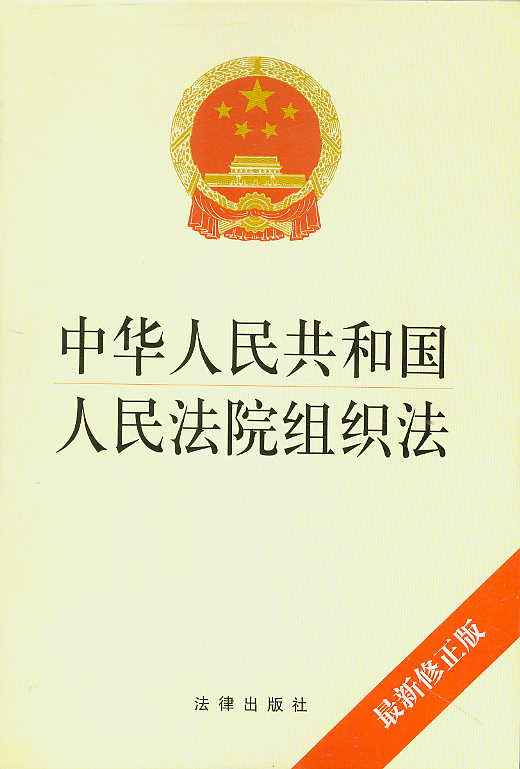
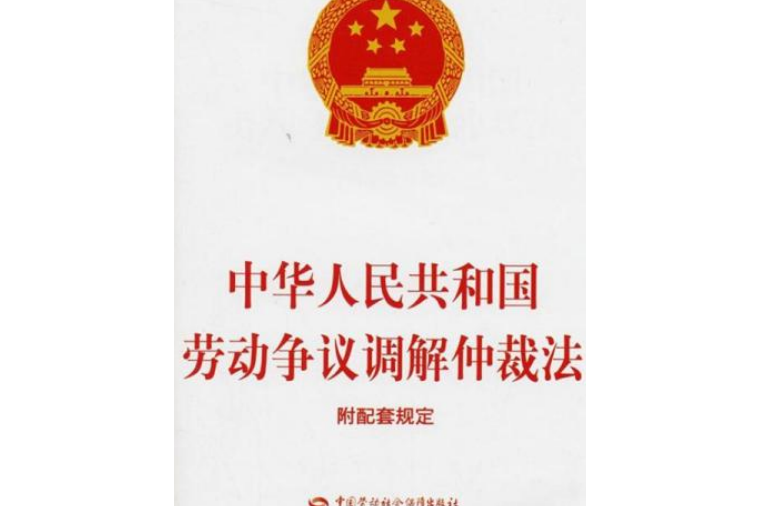
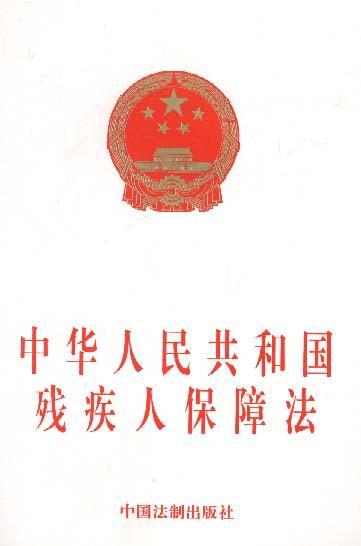
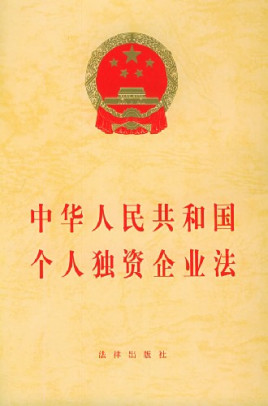
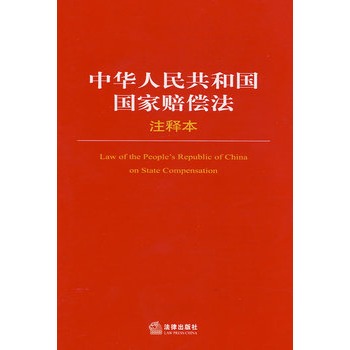
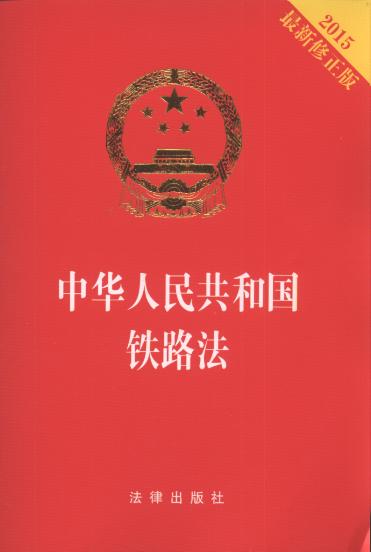
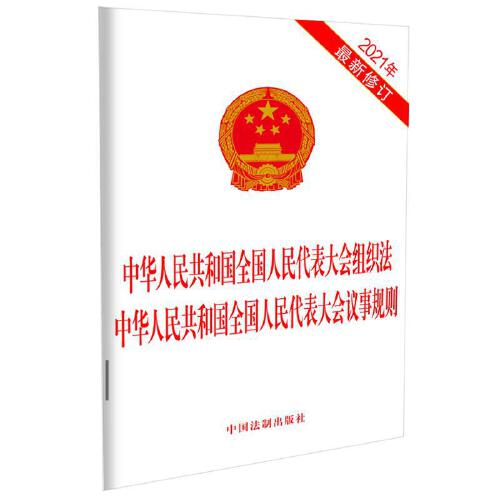


发表评论 取消回复